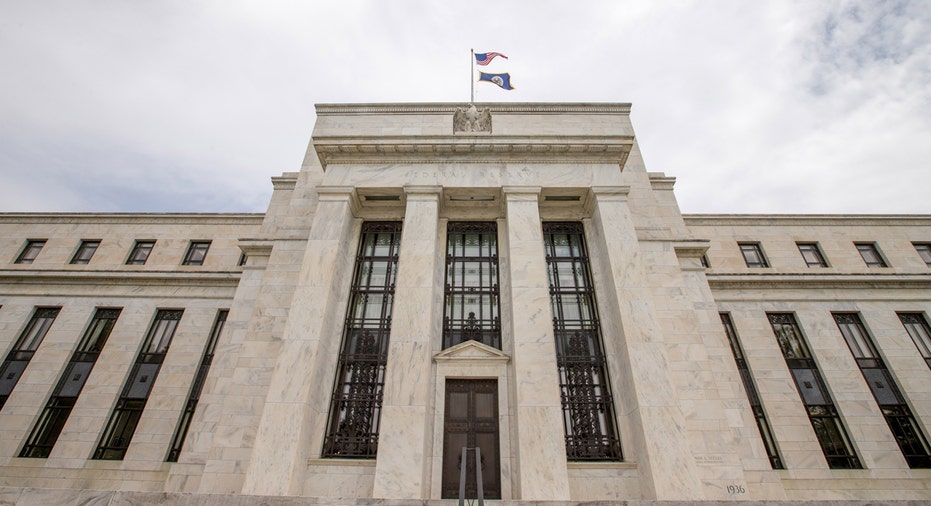Emerging Markets Brace for Fed Interest-Rate Rise

WASHINGTON -- The Federal Reserve's latest bout of patience bought many emerging-market economies some breathing room. But worries are already rising that it won't be enough to cushion them from the next jump in interest rates.
Emerging-market finance ministers and central bankers, who gathered in Washington in recent days for the International Monetary Fund's spring meetings, said they were bracing themselves for renewed financial volatility. Economists expect another move from the Fed in mid-June.
"It's going to happen and the emerging economies should be prepared," Mexican finance minister Luis Videgaray said in an interview. "We've prepared ourselves but still it's going to have an impact."
The Fed in December raised its interest-rate target by a quarter percentage point, its first move in seven years, and indicated plans for four more increases this year. The action contributed to global financial volatility and sparked outflows of money from emerging markets toward safer shores.
After months of market unrest, the Fed last month scaled back its projections to only two rate increases this year, citing risks from "global economic and financial developments." That calmed investors and sent many back into emerging economies.
"At the beginning of the year there was this sentiment that the Fed was going to push forward no matter what," said Mr. Videgaray. "They are data-dependent and part of the data they look at is the global economy and that became very clear in February. That put a lot of people at ease."
In Mexico, the early-year volatility in financial flows, combined with low oil prices, pushed the Mexican peso to record lows against the dollar in February. That prompted a rare coordinated move from the government announcing spending cuts worth 0.7% of gross domestic product combined with a surprise rate increase by the central bank. The peso has stabilized since then and inflation has remained within the central bank's target.
Still, Mr. Videgaray said he remained wary of the next Fed move. "The most important threat that we are facing is the high volatility and fragility of financial flows," he said.
Raghuram Rajan, head of the Reserve Bank of India, said the Fed's pause has "helped take a little bit of pressure off." Now, he said in an interview, the question is "are other countries capable of using the time well, or are the problems beyond their actions?"
"Whether we're simply reinflating asset prices only to see them fall down the line hinges on whether...this time is spent doing good things: getting investment back, getting growth on a more sustainable basis," he said.
One of the main worries across the developing world is a drying up of credit. After years of expanding lending, the cycle has now turned and credit is pulling back, said J.P. Morgan economist Joseph Lupton.
"The big question is how much damage is that going to do as we move through this cycle," he said. "History has been varied, but largely unkind to a large leverage unwind."
Particularly vulnerable are emerging-market firms whose earnings are already insufficient to cover their interest payments, potentially pushing governments toward costly bailouts. The IMF estimates such firms owe about $650 billion in corporate debt, roughly 12% of corporate debt in major emerging markets.
Some countries have worked aggressively to readjust economies. Indonesia, for instance, has sought to increase infrastructure investment to boost growth. It also managed to cut interest rates without sparking a significant weakening of the currency, giving the economy more room to expand.
Other countries have had more trouble. Brazil saw its currency fall to all-time lows against the dollar last year, in part because the government built up one of the world's largest fiscal deficits. Efforts to improve the economy have been thwarted by a political crisis that threatens to take down President Dilma Rousseff.
Brazilian central banker Alexandre Tombini, in a statement to the IMF's policy committee, acknowledged "the current political environment" as a key restraint.
Beyond Brazil, Mr. Tombini noted the more favorable environment in global markets of late due to the Fed's "reassessment" and other actions in China. But he said "this calmness may not be stable" with the Fed's outlook still diverging from its struggling counterparts in Europe and Japan.
One silver lining for emerging-market officials: For now, Fed officials seem attuned to their concerns. Chairwoman Janet Yellen has repeatedly emphasized the state of the global economy would influence the central bank's future rate decisions.
That has earned her high marks from many policy makers abroad and offered some confidence the U.S. won't forget them as it slowly tightens monetary policy.
"They certainly are paying more attention and talking about paying more attention, which I think is a very welcome step," Mr. Rajan said.
Write to David Harrison at david.harrison@wsj.com



















